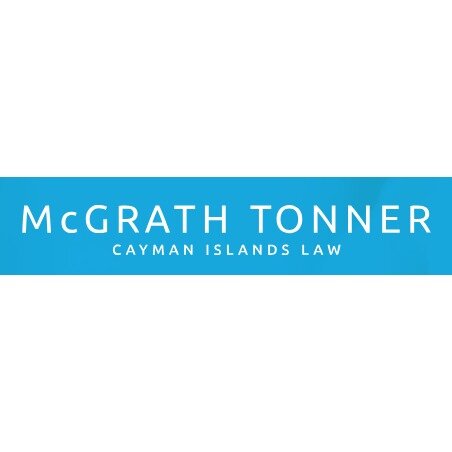Best Arrests & Searches Lawyers in Cayman Islands
Share your needs with us, get contacted by law firms.
Free. Takes 2 min.
Or refine your search by selecting a city:
List of the best lawyers in Cayman Islands
About Arrests & Searches Law in Cayman Islands
The legal framework governing arrests and searches in the Cayman Islands falls under the jurisdiction of the local police and judicial system. The Criminal Procedure Code outlines the rights of individuals and powers of the police. Arrests must be conducted lawfully, and searches need to adhere to established legal standards, ensuring respect for privacy and protection against unreasonable searches. Understanding these laws is crucial, as they aim to balance law enforcement interests with the rights and freedoms of individuals.
Why You May Need a Lawyer
Legal assistance may be necessary in various situations involving arrests and searches. Common scenarios include being arrested, facing a search warrant execution at your property, or if you feel your rights have been violated during an arrest or search. Lawyers bring expertise in navigating such situations, ensuring that any legal actions taken against you are conducted within the boundaries of the law, and can provide guidance in defending your rights.
Local Laws Overview
Key aspects of the local laws in the Cayman Islands regarding arrests and searches include the necessity for probable cause before an arrest or search can be legally conducted. Warrants are generally required for searches, particularly in private spaces, unless there are exigent circumstances. Individuals have the right to be informed of the reason for their arrest and must be presented before a court within a reasonable time. These laws collectively aim to safeguard personal liberties while allowing the police to perform their duties effectively.
Frequently Asked Questions
What rights do I have if I am arrested in the Cayman Islands?
You have the right to remain silent, the right to an attorney, and the right to be informed of the charges against you. You should also be brought before a magistrate within 48 hours of your arrest.
Can the police search my home without a warrant?
Generally, the police need a warrant to search a home. However, there are exceptions in cases of emergency or if evidence may be destroyed in the time it takes to secure a warrant.
What should I do if I am facing an arrest?
Stay calm, do not resist arrest, and politely ask for the reasons for your arrest. Contact a lawyer as soon as possible to understand your rights and ensure due process is followed.
How can I challenge an unlawful search?
Engage a legal professional who can file a motion to suppress any evidence obtained from an unlawful search. They can argue that your rights were violated and seek to have such evidence excluded from any proceedings.
Do I have to answer police questions during a search?
No, you have the right to remain silent, which includes not answering questions during a search. It's advisable to consult with a lawyer before making any statements.
Can I refuse a search if there is no warrant?
If police do not have a warrant, you can refuse to consent to a search. However, they may still proceed if they have probable cause or under certain exigent circumstances.
What happens after an arrest in the Cayman Islands?
After an arrest, you will be held in custody and presented before a court within 48 hours. During this time, you should seek legal assistance to prepare for any charges or legal proceedings.
How can I verify the legitimacy of a search warrant?
You can ask to see the warrant. It must be signed by a magistrate and correctly detail your location and the scope of the search. If you suspect issues, consult a lawyer immediately.
What if I am not the owner of the property being searched?
If you're not the owner, you still have rights, especially if the search involves your personal belongings. Inform the officers and contact the property owner and a lawyer for advice.
What are the penalties for resisting arrest or obstructing a search?
Resisting arrest or obstructing justice can lead to additional charges and potential penalties, including fines or imprisonment. It's best to comply as much as possible and seek legal assistance.
Additional Resources
For further assistance, consider reaching out to the Cayman Islands Legal Practitioners Association, or the Human Rights Commission for guidance on rights related to arrests and searches. The Royal Cayman Islands Police Service offers resources and contact information for legal inquiries and support.
Next Steps
If you find yourself in need of legal assistance concerning arrests or searches, it’s important to act quickly. Contact a lawyer with experience in criminal law in the Cayman Islands. Gather any documentation or evidence related to your situation, and be prepared to share these details with your attorney. Knowledgeable legal counsel can help protect your rights and navigate the complexities of the local legal system.
Lawzana helps you find the best lawyers and law firms in Cayman Islands through a curated and pre-screened list of qualified legal professionals. Our platform offers rankings and detailed profiles of attorneys and law firms, allowing you to compare based on practice areas, including Arrests & Searches, experience, and client feedback.
Each profile includes a description of the firm's areas of practice, client reviews, team members and partners, year of establishment, spoken languages, office locations, contact information, social media presence, and any published articles or resources. Most firms on our platform speak English and are experienced in both local and international legal matters.
Get a quote from top-rated law firms in Cayman Islands — quickly, securely, and without unnecessary hassle.
Disclaimer:
The information provided on this page is for general informational purposes only and does not constitute legal advice. While we strive to ensure the accuracy and relevance of the content, legal information may change over time, and interpretations of the law can vary. You should always consult with a qualified legal professional for advice specific to your situation.
We disclaim all liability for actions taken or not taken based on the content of this page. If you believe any information is incorrect or outdated, please contact us, and we will review and update it where appropriate.
Browse arrests & searches law firms by city in Cayman Islands
Refine your search by selecting a city.










